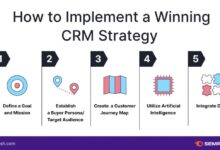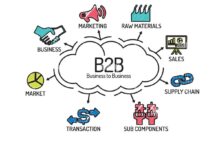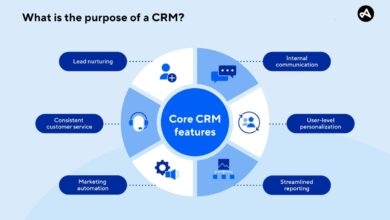B2B Marketplace: 7 Powerful Insights to Dominate Business Sales
Ever wondered how companies buy in bulk, source globally, and scale operations seamlessly? The secret often lies in a powerful digital hub: the b2b marketplace. These platforms are revolutionizing how businesses connect, trade, and grow—faster, smarter, and with greater reach than ever before.
What Exactly Is a B2B Marketplace?

A B2B marketplace—short for business-to-business marketplace—is an online platform where companies buy and sell goods and services to each other. Unlike B2C (business-to-consumer) platforms like Amazon or Walmart, B2B marketplaces cater specifically to organizational needs, focusing on bulk transactions, long-term contracts, and complex supply chains.
Core Definition and Functionality
At its heart, a b2b marketplace acts as a digital intermediary that connects suppliers with business buyers. These platforms streamline procurement by offering catalogs, real-time pricing, order tracking, and invoicing—all in one centralized environment. Think of it as a massive virtual trade show that never closes.
- Facilitates transactions between businesses, not individuals.
- Supports bulk ordering, custom pricing, and negotiated contracts.
- Often integrates with ERP, CRM, and inventory systems.
According to McKinsey & Company, B2B digital marketplaces are projected to account for over 17% of all B2B sales by 2025, up from just 5% in 2015. This explosive growth underscores the shift toward digital procurement.
How It Differs from B2C Marketplaces
While both B2B and B2C marketplaces enable online transactions, their operational models diverge significantly. B2C platforms focus on individual consumers making quick, emotion-driven purchases. In contrast, B2B marketplaces emphasize logic, efficiency, and long-term relationships.
- Purchase Volume: B2B deals involve larger quantities and higher order values.
- Decision-Making: B2B purchases often require approval from multiple stakeholders.
- Pricing Models: B2B platforms offer tiered pricing, volume discounts, and custom quotes.
“The B2B buyer doesn’t just want a product—they want a solution, a relationship, and reliability.” — Gartner Research
Top 5 Types of B2B Marketplaces
Not all b2b marketplaces are created equal. They vary by industry, scope, and business model. Understanding these types helps businesses choose the right platform for their needs.
Vertical Marketplaces (Industry-Specific)
These platforms focus on a single industry, such as manufacturing, healthcare, or construction. By specializing, they offer deep expertise, curated suppliers, and compliance with industry regulations.
- Examples: Uline (industrial supplies), Procurify (healthcare procurement).
- Advantages: High relevance, trusted networks, and regulatory alignment.
- Challenges: Limited supplier diversity outside the niche.
Vertical b2b marketplaces thrive because they understand the unique pain points of their industries. For instance, a medical equipment marketplace ensures all products meet FDA standards, reducing risk for hospitals and clinics.
Horizontal Marketplaces (Cross-Industry)
These platforms serve multiple industries by offering general business supplies—everything from office furniture to IT hardware. They’re the “one-stop shops” for everyday operational needs.
- Examples: Amazon Business, Alibaba.com, Global Sources.
- Advantages: Broad product range, competitive pricing, and fast delivery.
- Challenges: Less industry-specific expertise and potential quality variability.
Amazon Business, for example, has over 100 million products and serves more than 12 million businesses worldwide. Its success lies in leveraging Amazon’s logistics and user experience for B2B buyers.
Private vs. Public B2B Marketplaces
Another key distinction is whether a b2b marketplace is private (invitation-only) or public (open to all).
- Private Marketplaces: Operated by a single company or consortium. Access is restricted to vetted suppliers and buyers. Example: Siemens’ Teamcenter Marketplace.
- Public Marketplaces: Open to any registered business. They offer scale but less control over participants. Example: ThomasNet.
Private b2b marketplaces are ideal for enterprises that want to maintain brand integrity and supply chain security. Public ones, meanwhile, foster competition and innovation through open access.
Why B2B Marketplaces Are Transforming Global Trade
The rise of digital transformation has made b2b marketplaces not just convenient—but essential. They are reshaping how companies source, sell, and scale across borders.
Increased Efficiency and Cost Savings
One of the biggest advantages of a b2b marketplace is the automation of procurement processes. Manual tasks like RFQs (Request for Quotation), PO creation, and invoice reconciliation are streamlined, reducing administrative overhead.
b2b marketplace – B2b marketplace menjadi aspek penting yang dibahas di sini.
- Automated workflows cut procurement cycle times by up to 50%.
- Digital catalogs eliminate the need for paper-based catalogs and sales reps.
- Real-time inventory updates prevent over-ordering or stockouts.
A study by Forrester found that companies using b2b marketplaces reduce procurement costs by an average of 11% annually.
Global Reach and Market Expansion
For suppliers, a b2b marketplace is a passport to international markets. Instead of building sales teams in every country, businesses can list their products on a global platform and reach buyers instantly.
- SMEs gain access to markets they couldn’t afford to enter otherwise.
- Buyers discover niche suppliers from around the world.
- Platforms handle currency conversion, logistics, and compliance.
Alibaba.com, for instance, connects over 200,000 suppliers with 40 million buyers across 190 countries. This level of connectivity was unimaginable two decades ago.
“Digital marketplaces are leveling the playing field for small suppliers to compete with global giants.” — World Economic Forum
Key Features of a Successful B2B Marketplace
Not every platform succeeds. The most effective b2b marketplaces share a set of core features that enhance usability, trust, and scalability.
Robust Search and Discovery Tools
Unlike B2C, B2B buyers often search using technical specifications, SKUs, or part numbers. A powerful search engine with filters for certifications, materials, and compliance is critical.
- Faceted search allows filtering by industry, region, price, and lead time.
- AI-powered recommendations suggest relevant products based on past behavior.
- Support for natural language queries (e.g., “stainless steel bolts, Grade 316, M6”).
Platforms like ThomasNet use advanced search algorithms to match engineers with precise components, reducing research time by up to 70%.
Integrated Payment and Financing Options
B2B transactions often involve large sums and complex payment terms. A successful b2b marketplace must support diverse payment methods, including net-30, letters of credit, and escrow services.
- Integrated payment gateways (e.g., Stripe, PayPal for Business).
- Buyer financing options like trade credit or invoice factoring.
- Multi-currency support for international transactions.
Some platforms, like QuickBooks Commerce, even offer embedded financial services, turning the marketplace into a full procurement ecosystem.
Supplier Verification and Trust Mechanisms
Trust is paramount in B2B. Buyers need assurance that suppliers are legitimate, reliable, and capable of fulfilling orders.
- Supplier onboarding with document verification (e.g., business license, tax ID).
- Customer reviews, ratings, and case studies.
- Badges for verified suppliers, ISO certification, or on-time delivery rates.
Alibaba’s “Gold Supplier” program, for example, verifies company legitimacy and offers buyer protection, increasing conversion rates by up to 30%.
Challenges and Risks in B2B Marketplaces
Despite their advantages, b2b marketplaces are not without challenges. Understanding these risks is crucial for both buyers and sellers.
Supplier Quality and Fraud Prevention
With open access comes the risk of counterfeit goods, false claims, or unreliable delivery. Marketplaces must invest heavily in vetting and monitoring.
- Need for third-party audits and product testing.
- AI-driven anomaly detection to flag suspicious activity.
- Clear dispute resolution processes.
In 2022, a report by ICC Commercial Crime Services found that 23% of B2B fraud cases originated on digital marketplaces, highlighting the need for stronger safeguards.
Price Transparency and Margin Pressure
While transparency benefits buyers, it can squeeze supplier margins. When prices are visible to all, competition intensifies, often leading to a race to the bottom.
b2b marketplace – B2b marketplace menjadi aspek penting yang dibahas di sini.
- Suppliers may avoid listing high-margin items.
- Buyers may delay purchases waiting for discounts.
- Need for value-added services to differentiate offerings.
Successful suppliers counter this by bundling services (e.g., installation, training) or offering private quotes for large clients.
Data Security and Compliance Risks
B2B marketplaces handle sensitive data—financial records, contracts, and intellectual property. A breach can damage reputations and lead to legal liabilities.
- Must comply with GDPR, CCPA, and industry-specific regulations.
- Need for end-to-end encryption and secure APIs.
- Regular security audits and penetration testing.
In 2023, a major industrial marketplace suffered a data leak affecting 50,000 businesses, underscoring the importance of cybersecurity in B2B ecosystems.
How to Choose the Right B2B Marketplace for Your Business
With hundreds of platforms available, selecting the right b2b marketplace requires careful evaluation. Here’s a strategic approach.
Assess Your Industry and Product Fit
Not every marketplace suits every business. A chemical manufacturer shouldn’t list on a fashion wholesale platform.
- Identify platforms that specialize in your vertical.
- Check if competitors are already active there.
- Review the buyer demographics and average order value.
For example, a CNC machine tool supplier would benefit more from ThomasNet than from Amazon Business, due to the technical buyer base.
Evaluate Platform Fees and Revenue Models
B2B marketplaces use various monetization models—understanding them is key to profitability.
- Commission-Based: Platform takes a cut (5–15%) of each sale.
- Subscription: Monthly fee for listing or premium features.
- Hybrid: Combination of listing fees and transaction charges.
Some platforms, like Faire, offer “net 60” terms to buyers but charge suppliers higher commissions—weighing cash flow impact is essential.
Review Integration and Scalability
A marketplace should integrate seamlessly with your existing systems—ERP, inventory, CRM.
- Check for API availability and pre-built connectors (e.g., SAP, Shopify, NetSuite).
- Ensure real-time sync of stock levels and order status.
- Test onboarding and support responsiveness.
Platforms like ChannelAdvisor offer robust integration suites, reducing manual data entry and errors.
Future Trends Shaping the B2B Marketplace Landscape
The b2b marketplace is not static. Emerging technologies and shifting buyer expectations are driving rapid evolution.
AI and Personalization at Scale
Artificial intelligence is transforming how buyers discover products and how suppliers optimize listings.
- AI-powered chatbots handle pre-sales inquiries 24/7.
- Predictive analytics recommend products based on past orders.
- Natural language processing enables voice-based ordering.
IBM’s Watson Supply Chain uses AI to predict disruptions and suggest alternative suppliers, enhancing resilience.
Blockchain for Transparency and Trust
Blockchain technology is being piloted to verify product authenticity, track provenance, and automate smart contracts.
b2b marketplace – B2b marketplace menjadi aspek penting yang dibahas di sini.
- Immutable records of transactions and certifications.
- Smart contracts that auto-execute payments upon delivery.
- Useful in industries like pharmaceuticals and aerospace.
Maersk and IBM’s TradeLens platform uses blockchain to digitize global shipping, reducing paperwork by 80%.
Rise of Niche and Hyper-Local Marketplaces
While global platforms dominate, there’s growing demand for niche and local b2b marketplaces.
- Niche: Focus on sustainable materials, vegan textiles, or AI hardware.
- Hyper-Local: Serve regional suppliers and buyers to reduce logistics costs.
- Community-driven: Built around shared values or industry associations.
Examples include SourceTextile (sustainable fabrics) and LocalStack (regional construction suppliers).
What is a B2B marketplace?
A B2B marketplace is an online platform where businesses buy and sell products or services to each other. It streamlines procurement, enables global trade, and supports bulk transactions with features like custom pricing and integrated logistics.
How do B2B marketplaces make money?
They use models like charging suppliers a commission per sale, subscription fees for premium listings, or hybrid models combining both. Some also offer value-added services like financing or analytics for additional revenue.
Are B2B marketplaces safe for suppliers?
Reputable platforms implement supplier verification, secure payments, and dispute resolution. However, risks like fraud or margin pressure exist, so due diligence is essential before joining any marketplace.
Can small businesses succeed on B2B marketplaces?
Absolutely. Platforms like Alibaba and Amazon Business enable SMEs to reach global buyers. Success depends on product quality, competitive pricing, and excellent customer service.
What’s the future of B2B marketplaces?
The future includes AI-driven personalization, blockchain for trust, and the growth of niche platforms. Integration with ERP systems and sustainable sourcing will also shape the next generation of b2b marketplaces.
B2B marketplaces are no longer just digital catalogs—they’re dynamic ecosystems driving efficiency, innovation, and global connectivity. From streamlining procurement to enabling SMEs to compete globally, these platforms are redefining how businesses operate. As AI, blockchain, and hyper-specialization reshape the landscape, the most successful players will be those who embrace technology, prioritize trust, and focus on delivering real value. Whether you’re a buyer seeking reliability or a seller aiming to scale, the b2b marketplace offers unprecedented opportunities—if navigated wisely.
b2b marketplace – B2b marketplace menjadi aspek penting yang dibahas di sini.
Further Reading:









